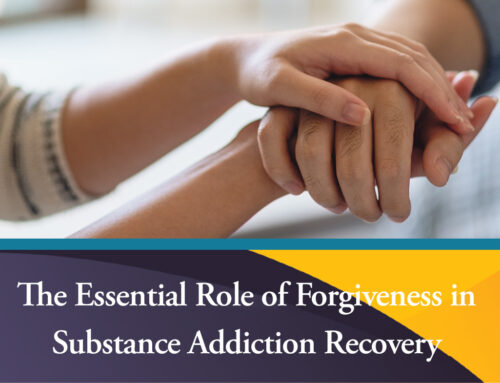The decision to enroll in addiction recovery is an important one, and it helps to choose the right rehab option for you. Outpatient and inpatient rehab have unique benefits and drawbacks. Here are the differences to help you decide which is the best choice for you.
Why Start Addiction Recovery?
There are many stigmas and myths out there about drug and alcohol abuse that can be harmful and hinder people from getting the help they need. One of the truths, though, is this: addiction is a chronic disease, and people can’t simply stop using substances for a few days and be cured. Patients will find that their best options for help are in the form of inpatient and/or outpatient rehab to stop using and recover their lives. No matter which rehab option is right for you, it will help you stop using substances, help you stay sober, and help you become a productive member of your family, at work, and in society.
Outpatient vs Inpatient: What’s the Difference?
As mentioned, drug and alcohol addiction recovery programs typically fall into two categories: outpatient and inpatient.
While each program has its benefits, the specific type of treatment required needs to be considered based on a patient’s individual needs. It could be inpatient is more beneficial than outpatient for one individual’s journey to recovery, vice versa, or a combination is what works best. To determine which is better for you, read on to learn more about outpatient vs. inpatient rehab and talk to a professional to get further assistance.
Outpatient Rehab
With outpatient rehab, patients are able to continue their normal day-to-day activities because they can continue to live at home as they recover. Treatment will involve daily treatment, such as therapy, counseling, or group sessions at a clinic or facility. While receiving treatment, it can be scheduled around a person’s work or family hours to avoid interruption and offer patients flexibility while still providing a high standard of care.
Advantages of Outpatient Rehab
Here are the advantages of outpatient rehab:
Recovery in the Comfort of Home
For some, recovering in the comfort of their own home surrounded by their loved ones is a big advantage. They can stay in their own house, enjoy their yard, enjoy activities with their families, and get support from loved ones close by. They can also organize their own time the way they want and cook and prepare their own food.
Continue with Life
For those in outpatient rehab, they can continue to live their life. They can go to work, attend school, and take care of their children. They can go to therapy sessions and meetings when it fits best in their schedule.
More Affordable
Often, outpatient care costs less than inpatient care. Even those with good health insurance can still save if they choose to have outpatient care instead.
Why Outpatient Rehab May Not Be for You
We can’t stress enough that your needs will determine the right program for you. So, while outpatient has those great advantages, it doesn’t mean it’s the right fit for everyone.
Outpatient care may not be the best choice for you if you experience constant urges, as facilities are not open round-the-clock and don’t always offer 24-hour support. It also won’t be right for you if you have a hard time showing up for your treatment on your own. The success of outpatient rehab depends on your ability to regularly attend and participate in sessions. Sometimes, the freedom of outpatient treatment can be a blessing, and sometimes it doesn’t work. If you feel you need more structured and monitored treatment, you may want to consider an inpatient facility.
Inpatient Rehab
Inpatient rehab is also known as a live-in program because you live at the recovery facility. These facilities offer 24-hour support and care. This helps patients avoid temptations and influences in daily life that can trigger substance use. At inpatient centers, they are focused on helping patients learn to adopt drug or alcohol-free lifestyles after treatment and equip themselves with the life skills needed. The length of treatment can vary but 30 days are most common.
Advantages of Inpatient Care
Here are the advantages of inpatient care:
Focus on Recovery
With inpatient rehab, patients can allow themselves to take a step back from their daily responsibilities like work, parenting, and personal relationships. This means they can focus fully and entirely on their recovery. Self-care is an important part of recovery and relapse prevention, and inpatient care can help patients focus on themselves and their recovery.
Round-Clock Care
With this type of program, patients will also get round-the-clock care and support. They’ll be surrounded by professional, trained staff equipped with the experience and skills for handling such difficult situations.
Amenities
Inpatient treatment centers aren’t clinical and sterile like many people think. They can feel homey and provide amenities to help patients find healthy new hobbies they can enjoy when they return home.
Things to Keep in Mind with Inpatient Rehab
When it comes to inpatient rehab, remember that it requires a larger commitment than outpatient programs do. You may have to find care for your children or family members and take a leave from work or school while you’re at the facility. It can be challenging – especially when it comes to the transition to an agenda that isn’t your own. But these are what will make it effective if this is the route you are willing to take.
Calvary Ranch is Here for You
If you believe inpatient rehab is the right choice for you or a loved one, we are here to help. Our Rehab Ranch in Montrose, CO, is a simple place with a simple program. Calvary Ranch Colorado is located on a working cattle ranch surrounded by rivers, lakes, trees, and majestic mountain views. Abundant wildlife also shows God’s creation and adds to the tranquility of this place. Check out our What to Expect information to learn more.






